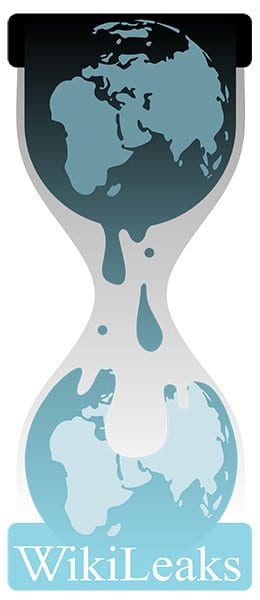
Introduction
In the world of cybersecurity and espionage, few revelations have stirred as much controversy and intrigue as WikiLeaks’ periodic disclosures of classified information. One of the most significant leaks in recent memory pertained to the CIA‘s cyber-tools arsenal. In this article, we will delve deep into WikiLeaks’ latest disclosure of CIA cyber-tools, shedding light on the covert operations of the American Deep State.
Unveiling the CIA’s Cyber-Tools Arsenal
WikiLeaks’ mission to expose government secrets reached a zenith when it unveiled a trove of documents, collectively known as “Vault 7,” on March 7, 2017. These documents, allegedly sourced from within the CIA itself, revealed a treasure trove of cyber-tools and hacking techniques that the agency had developed for clandestine operations. The American Deep State had never before been exposed in such detail.
The release of Vault 7 sent shockwaves through the intelligence community and raised questions about the extent of the CIA’s capabilities in cyberspace. It also sparked a broader discussion about the role of the American Deep State in shaping national and international affairs.
WikiLeaks and the American Deep State
To understand the implications of WikiLeaks’ disclosure of CIA cyber-tools, we must first define the concept of the American Deep State. The term “Deep State” refers to a covert network of individuals and organizations within the government and military that operate outside the scope of official oversight. These shadowy figures are believed to exert considerable influence over policy decisions, often in ways that may not align with the stated goals of elected officials.
The American Deep State is a contentious and divisive concept, with some viewing it as a necessary safeguard against instability and others decrying it as a threat to democracy. WikiLeaks’ role in this discourse is significant, as it has consistently sought to bring transparency to the actions of government agencies, including the CIA.
Vault 7: The Cyber Arsenal Unveiled
The release of Vault 7 by WikiLeaks was nothing short of a bombshell. The documents contained detailed information about the CIA’s cyber capabilities, including tools for hacking into computers, smartphones, smart TVs, and even vehicles. Among the revelations were malware and exploits designed to compromise popular operating systems, such as Microsoft Windows and Apple iOS.
The scope and sophistication of these cyber-tools were astonishing, raising questions about the extent of the American Deep State’s reach into the digital realm. The tools could be used for a range of purposes, from surveillance and intelligence gathering to cyberattacks and espionage. In many ways, they represented a formidable arsenal for covert operations.
The Ethical Dilemma: National Security vs. Privacy
One of the central ethical dilemmas raised by WikiLeaks’ disclosure of CIA cyber-tools is the balance between national security and individual privacy. Proponents of a strong national security apparatus argue that these tools are essential for protecting the country from external threats. However, critics argue that their use can infringe upon the privacy and civil liberties of ordinary citizens.
The American Deep State, operating in the shadows, has the power to leverage these cyber-tools for its purposes, often without public knowledge or oversight. This secrecy is a source of concern for those who value transparency and accountability in government actions.
The Role of Whistleblowers in Exposing the Deep State
WikiLeaks’ founder, Julian Assange, has often been characterized as a whistleblower, though he has faced legal challenges for his actions. Whistleblowers play a crucial role in exposing the activities of the American Deep State by revealing classified information that may otherwise remain hidden from public view.
In the case of Vault 7, the alleged CIA insider who leaked the documents did so in an attempt to shed light on the agency’s covert cyber operations. This act of whistleblowing thrust the American Deep State into the spotlight and ignited a global conversation about government surveillance and the erosion of privacy rights.
Government Response and Legal Implications
The release of Vault 7 prompted a swift and stern response from the U.S. government. The CIA, along with other intelligence agencies, condemned the leak as a threat to national security. The U.S. Department of Justice launched an investigation into the source of the leak, leading to the arrest of a former CIA employee, Joshua Schulte, who was subsequently charged with the unauthorized disclosure of classified information.
The legal implications of leaking classified information are complex and contentious. Supporters of whistleblowers argue that these individuals perform a vital public service by exposing government misconduct, while detractors contend that such leaks endanger national security.
The Global Impact of Vault 7
The impact of WikiLeaks’ disclosure of CIA cyber-tools extended far beyond U.S. borders. Foreign governments and intelligence agencies around the world were forced to reassess their own cybersecurity measures in light of the revelations. The tools and techniques outlined in Vault 7 had the potential to be used against any target, domestic or foreign, making cybersecurity a global concern.
Additionally, the disclosure underscored the interconnectedness of the digital world and the need for international norms and regulations governing cyber operations. It raised questions about the extent to which governments engage in cyber-espionage and cyberattacks, further highlighting the role of the American Deep State in shaping global events.
Calls for Transparency and Accountability
In the wake of Vault 7, calls for greater transparency and accountability within the American Deep State grew louder. Advocacy groups and civil liberties organizations called for increased oversight of government surveillance programs and the development of cyber-tools. The argument was that a balance must be struck between national security imperatives and the protection of individual rights.
Efforts to reform government surveillance practices were met with resistance from some quarters, with proponents of a strong Deep State arguing that any curtailment of its powers would weaken the country’s ability to protect itself from threats.
The Ongoing Debate
Unveiling the CIA’s Cyber-Tools Arsenal: Illuminating the American Deep State’s Digital Secrets
In the shadows of global politics, where intrigue and espionage intertwine, there exists a clandestine world known as the “American Deep State.” It’s a realm where secrets are currency, and power brokers operate behind closed doors. The revelation of this enigmatic world reached an electrifying climax on March 7, 2017, when WikiLeaks, the harbinger of governmental secrets, pulled back the curtain on a trove of documents so explosive that it shook the very foundations of global intelligence: “Vault 7.”
Vault 7, allegedly sourced from within the very heart of the CIA, was nothing short of a digital Pandora’s box. Inside, it contained a dazzling array of cyber-tools and hacking techniques meticulously developed by the agency for covert operations. The scope and sophistication of these tools transcended the imagination, leaving seasoned experts and novice observers alike astounded. This revelation was more than just a leak; it was an unprecedented exposé that thrust the American Deep State into the glaring spotlight.
As the cyber-magicians of the Central Intelligence Agency were unmasked, the world watched in awe and trepidation. The documents within Vault 7 unveiled an astonishing arsenal: tools capable of infiltrating smart devices, hijacking vehicles, and even manipulating critical infrastructure systems. It was as if science fiction had collided head-on with the realm of reality, and the implications were nothing short of seismic.
The release of Vault 7 sent shockwaves rippling through the intelligence community. It shattered the perception of invincibility surrounding the CIA’s covert digital capabilities. The questions that emerged were as vast as they were unsettling. How deep did this digital rabbit hole go? What else lurked beneath the surface? What did this reveal about the inner workings of the American Deep State?
But Vault 7’s impact reached far beyond the confines of the intelligence community. It reverberated through the corridors of power and ignited a global conversation. It forced us to confront a crucial question: How deeply entrenched was the American Deep State in shaping not just national, but international affairs?
The release of Vault 7 was not just a leak; it was a clarion call for transparency, accountability, and a demand for a deeper understanding of the shadowy world that often operates beyond the public eye. In an era where information is power, Vault 7 exposed the raw nerve of the American Deep State, laying bare its most potent digital tools for the world to see.
As we delve into this riveting exploration of the American Deep State’s digital secrets, we will navigate the murky waters of espionage, power, and technology. From the clandestine corridors of Langley to the interconnected world of cyberspace, join us on this electrifying journey to unveil the untold stories that lurk beneath the surface, and discover the true extent of the American Deep State’s influence in the modern age.
Stay with us as we dive deeper into the intricate web of cyber-espionage, decoding the mysteries of the digital realm and revealing how these revelations have transformed the landscape of global politics as we know it. Welcome to the electrifying world of “Unveiling the CIA’s Cyber-Tools Arsenal: Illuminating the American Deep State’s Digital Secrets.”
Conclusion: The Legacy of WikiLeaks and the American Deep State
In conclusion, WikiLeaks’ latest disclosure of CIA cyber-tools, as exemplified by the Vault 7 release, has had a profound and lasting impact on the discourse surrounding the American Deep State. It brought to light the extent of the CIA’s cyber capabilities and ignited a global conversation about government surveillance, privacy, and accountability.
The ongoing debate about the American Deep State and the role of organizations like WikiLeaks underscores the complexities of modern governance and the challenges of striking a balance between national security imperatives and individual rights. As technology continues to evolve, so too will the questions surrounding the role of the American Deep State in the digital age. WikiLeaks, for its part, remains committed to its mission of transparency and challenging the secrecy of government actions, ensuring that the conversation will persist for years to come.
Other Articles of Interest
Market Update Tactical Investor Past Calls: The Trend Is Your Friend
Dow Jones Industrial Average Stocks Soar Slaughtering the Bears
Gold buying Spree Russia & Russian Strength?

China’s corruption crackdown targets both big & small officials
China Corruption: Fast & Furious crackdown
The Big Picture: Lower oil & energy prices
Crude oil price projections: will oil prices stabilize
The Middle Class Squeeze: 4.00 in 1973 equates to 22.41 today
Syria War News: It Is All About Blood, Guns & Money
For Many Americans Great Recession Never Ended
Is VIX pointing to a stock market crash in 2016?
Belt & Road Initiative: Taking China’s culture beyond borders
EU stands to benefit by Granting China free market status
China cuts rates to boost green energy demand

China showcases its culture to the World


